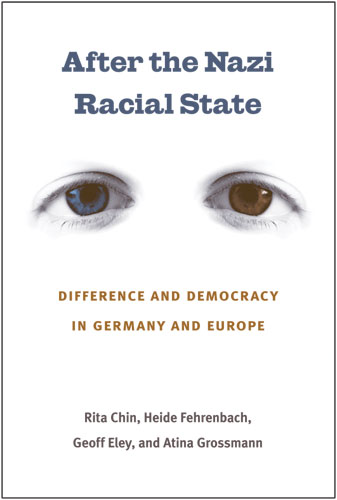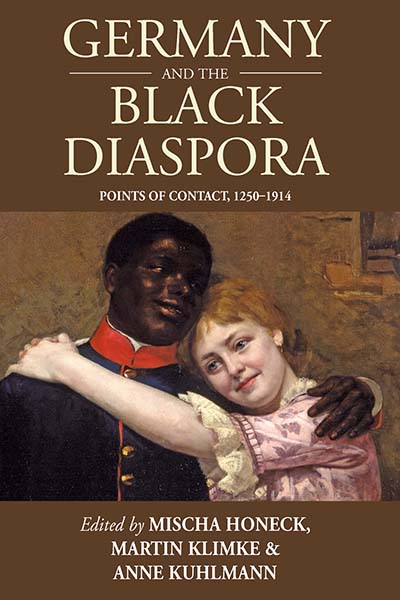Other Germans: Black Germans and the Politics of Race, Gender, and Memory in the Third ReichPosted in Books, Europe, History, Media Archive, Monographs on 2013-08-12 19:15Z by Steven |
Other Germans: Black Germans and the Politics of Race, Gender, and Memory in the Third Reich
University of Michigan Press
2004
296 pages
6 x 9
Paperback ISBN: 978-0-472-03138-2
Ebook ISBN: 978-0-472-02160-4
Tina M. Campt, Professor of Women’s, Gender and Sexuality Studies and Director of the Africana Studies Program
Barnard College
It’s hard to imagine an issue or image more riveting than Black Germans during the Third Reich. Yet accounts of their lives are virtually nonexistent, despite the fact that they lived through a regime dedicated to racial purity.
Tina M. Campt’s Other Germans tells the story of this largely forgotten group of individuals, with important distinctions from other accounts. Most strikingly, Campt centers her arguments on race, rather than anti-Semitism. She also provides an oral history as background for her study, interviewing two Black German subjects for her book.
In the end the author comes face to face with an inevitable question: Is there a relationship between the history of Black Germans and those of other black communities?
The answers to Campt’s questions make Other Germans essential reading in the emerging study of what it means to be black and German in the context of a society that looked at anyone with non-German blood as racially impure at best.
Contents
- Front Matter
- Table of Contents
- Acknowledgments
- Introduction: Race, Memory, and Historical Representation: Contextualizing Black German Narratives of the Third Reich
- Part I: Echoes of Imagined Danger – Specters of Racial Mixture
- Part II: Memory Narratives/Memory Technologies: Race, Gendering, and the Politics of Memory Work
- Chapter 3: Conversations with the “Other Within”: Memories of a Black German Coming of Age in the Third Reich
- Chapter 4: Identifying as the “Other Within”: National Socialist Racial Politics and an Afro-German Childhood in the Third Reich
- Chapter 5: Diaspora Space, Ethnographic Space – Writing History Between the Lines: A Postscript
- Appendix: Original German Interview Excerpts
- Notes
- Bibliography
- Index





